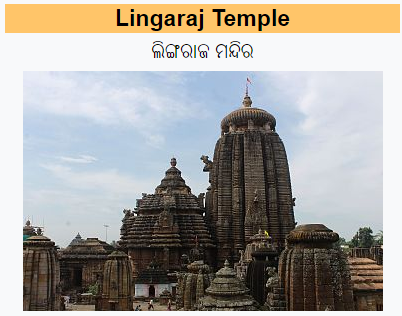Table of Contents:
A. GS1 Related:
B. GS2 Related:
POLITY
1. ‘Law on cow slaughter not feasible’
2. Two-child norm tied to jobs in Assam
C. GS3 Related:
ENVIRONMENT AND ECOLOGY
D. GS4 Related:
E. Concepts-in-News: Related Concepts to Revise/Learn
F. BILLS/ACTS/SCHEMES/ORGS IN NEWS
G. Fun with Practice Questions 🙂
H. Archives
************************************************************************************************************
.
************************************************************************************************************
Useful News Articles for UPSC Current Affairs
A. GS1 Related
Nothing here for Today
Category: POLITY
1. ‘Law on cow slaughter not feasible’
What’s in news?
- Rashtriya Swayamsevak Sangh chief Mohan Bhagwat called for a nationwide law for banning cow slaughter
- Government official response: not feasible since slaughtering comes under State subject- The protection and preservation of animals is Entry 15 of the State List of the Seventh Schedule of the
Key Facts:
- 24 States across India have made laws to tackle the issue.
- The Gujarat Assembly recently passed an amendment to the Gujarat Animal Preservation (Amendment) Bill – makes cow slaughter, transportation of cows or beef and beef products punishable with a life term, but not less than 10 years.
- States and union territory, where there is no ban on cow slaughter- Kerala, Arunachal Pradesh, Mizoram, Meghalaya, Nagaland and Lakshadweep are the only States and union territory.
2. Two-child norm tied to jobs in Assam
What’s in news?
- The Assam government announced a draft population policy
- Two child policy: Denial of government jobs to people with more than two children
- Any person getting a job after meeting this condition would have to maintain it till end of his service
- For employment generation schemes like grant of tractors, houses and for other government benefits, this two-children norm will be applicable
- Besides, all elections such as panchayats, municipal bodies and autonomous councils held under the State Election Commission will also have this norm for candidates
- Girl education: Making education up to university level free for all girls
- This step is likely to arrest the school dropout rate
- Marriage age: Policy seeks to debate on increasing the legal age of marriage from 18 for girls and 21 for boys
- If anybody had child marriage then he would be ineligible for government job
- Women protection: Stringent laws to prevent violence and sexual abuse of women
- A proposal for providing incentives is included for poor persons, who take care of their elderly parents
- The policy will also care for the adolescents
- The policy proposes to set up a State Population Council and a State Population Research Centre
C. GS3 Related
Category: ENVIRONMENT AND ECOLOGY
1. Nilgai’s killed in Noida
Nilgai species:
- The nilgai or blue bull is the largest Asian antelope and is endemic to the Indian subcontinent.

Habitat
- Nilgai prefer areas with short bushes and scattered trees in scrub forests and grassy plains.
- They are common in agricultural lands, but hardly occur in dense forest.
- Major populations occur in the Terai lowlands in the foothills of the Himalayas (northern India), but the antelope is sparsely found in Nepal and Pakistan and is extinct in Bangladesh.
Wildlife Protection Act, 1972
- The Wildlife Protection Act, 1972 is an Act of the Parliament of India enacted for protection of plants and animal species.
Objective
- The Act provides for the protection of wild animals, birds and plants
- It has six schedules which give varying degrees of protection.
-
- Schedule I and part II of Schedule II – absolute protection – offences under these are prescribed the highest penalties.
- Schedule III and Schedule IV species are also protected, but the penalties are much lower.
- Schedule V includes the animals which may be hunted.
- The plants in Schedule VI are prohibited from cultivation and planting.
Enforcement
- Enforcement can be performed by agencies such as the Forest Department, the Police, the Wildlife Crime Control Bureau (WCCB), the Customs and the Central Bureau of Investigation (CBI).
D. GS4 Related
Nothing here for Today
PIB Articles Editorials Roundup
E. Concepts-in-News: Related Concepts to Revise/Learn

1. Lingaraja Temple:
Lingaraja Temple is a Hindu temple dedicated to Harihara, a form of Shiva and Vishnu and is one of the oldest temples in Bhubaneswar.
The central tower of the temple is 180 ft (55 m) tall.
The temple represents the quintessence of the Kalinga Architecture and culminating the medieval stages of the architectural tradition at Bhubaneswar.
The Kaḷinga architectural style is a style which flourished in the ancient Kalinga region or present eastern Indian state of Odisha and northern Andhra Pradesh. The style consists of three distinct types of temples: Rekha Deula, Pidha Deula and Khakhara Deula.
2. The Prime Minister Shri Narendra Modi will inaugurate an exhibition titled “Swachhagraha – Bapu Ko Karyanjali – Ek Abhiyan, Ek Pradarshani” to mark the 100 years of Mahatma Gandhi’s first experiment of Satyagraha in Champaran.
| BILLS/ACTS/SCHEMES/ORGANISATIONS IN NEWS | About the Article |
G. Practice Questions for UPSC Prelims Exam:)
Question 1: Lingaraja Temple is built on which architectural style
- Kalinga Architecture
- Dravida Architecture
- Nagara Architecture
- Vasera Architecture
Question 2: Consider the following statements:
- Electronic Voting Machines (EVM) are used in elections by the Election Commission by invoking its Constitutional powers under Article 324
- The ‘Voter Verified Paper Audit Trail’ refers to an EVM accessory that records every voter id and his/her vote on a slip of paper, for the purpose of verification in the event a dispute arises
Which of the statements given above is/are correct?
- 1 only
- 2 only
- Both 1 and 2
- Neither 1 nor 2
“Proper Current Affairs preparation is the key to success in the UPSC- Civil Services Examination. We have now launched a comprehensive ‘Online Current Affairs Crash Course’. Limited seats available. Click here to Know More.”
H. Archives
Practice More: Enroll for India’s Largest All-India Test Series

Comments